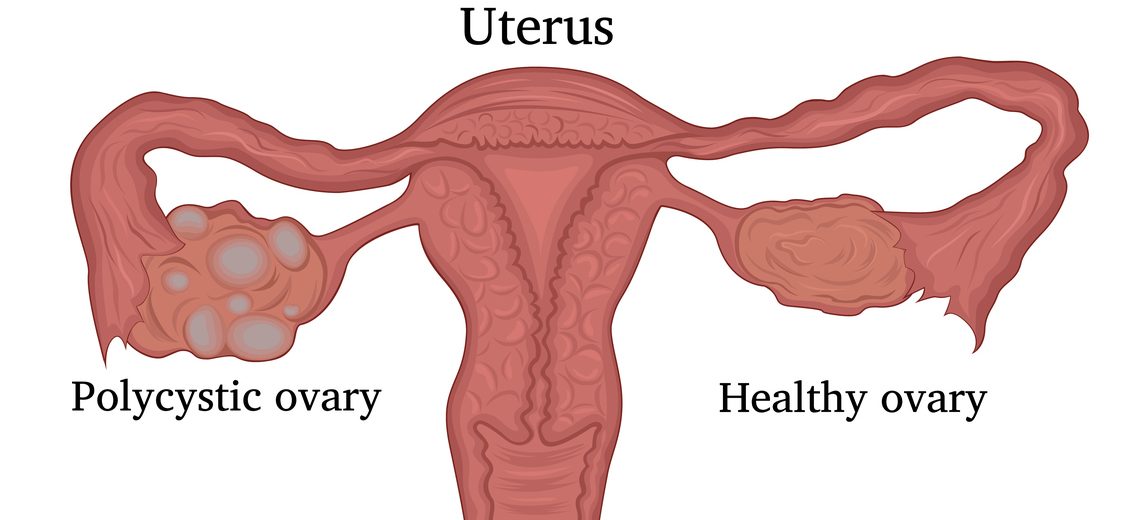Why Women with PCOS (Polycystic Ovarian Syndrome) Are at Higher Risk of Obesity

PCOS (Polycystic Ovarian Syndrome) and Its Relation to Obesity
By: Jessica Basso, RN
PCOS, Polycystic Ovarian Syndrome, is one of the most common hormonal disorders in women of reproductive age. A woman affected with this condition will experience:
- Irregular menstrual bleeding/cycles,
- Excess androgen, which is elevated levels of male hormones,
- Enlarged ovaries that contain numerous small fluid-filled sacs (cysts) that surround the eggs (polycystic ovaries).
- Physical signs such as excess facial and/or body hair (hirsutism), adult acne, or male pattern baldness (androgenic alopecia). These physical signs are caused by elevated levels of male hormones (androgens).
How PCOS affects Obesity
PCOS usually begins in females soon after they start having periods. For others, it may develop later on following substantial weight gain. Women affected by obesity have a greater risk for PCOS. On the flipside, women with PCOS have a greater risk for obesity. With that said, many women with PCOS eat a healthy diet and exercise religiously but still have a problem with weight. Obviously, this is not a simple issue of caloric intake and lack of adequate activity.
The bodies of women with PCOS process food and calories differently, which makes it difficult for them to maintain a healthy weight. One key difference is that unlike other women, they produce too much insulin or the insulin they produce doesn’t work as it should. Consequently, women with PCOS tend to gain weight and/or have hard time losing weight.
What causes PCOS
The exact cause of PCOS is unknown. However, doctors believe it is related to excess production of androgens. Although all women produce some androgens, too much of this hormone prevents ovulation. Further, it also disrupts normal menstrual cycle which can lead to infertility in females. More so, too much androgen can lead to insulin resistance.
There are some factors that play a role in the production of androgens and therefore influence the development of PCOS. These include:
- Excess production of insulin:
Excess insulin production may be a factor because it leads to insulin resistance. This means your body will be unable to use glucose effectively. A body that is resistant to insulin copes by secreting more insulin to make glucose available for the cells. The resulting excess insulin is thought to boost androgen production in the ovaries.
- Conditions before birth
Doctors also believe that conditions before birth may be a factor that causes PCOS. This is because of the excessive exposure to androgens during fetal life. As a result, the genes of the growing fetus are prevented from working or developing properly.
Cure for PCOS
There is no simple cure for PCOS. Fortunately, you can control it, and in this way decrease the risk of long-term complications. Some of the thing you should do include:
- Exercise regularly,
- Eat a healthy diet,
- Lose excess weight,
- Quit smoking. Quitting smoking controls PCOS by lowering high levels of androgens. You will also benefit from a healthier life by quitting smoking.
- Use medications to control hormones. Some medications that doctors prescribe to control hormones include:
- Birth control pills. These address symptoms of PCOS such as menstrual cycle problems, male-type hair loss, hair growth, and acne. Androgen reducing therapies will also do the same.
- Metformin, which is an anti-diabetic drug, or the fertility drug gonadotropins, to address insulin resistance.
- Fertility drug treatment to help start ovulation if you wish to get pregnant.












